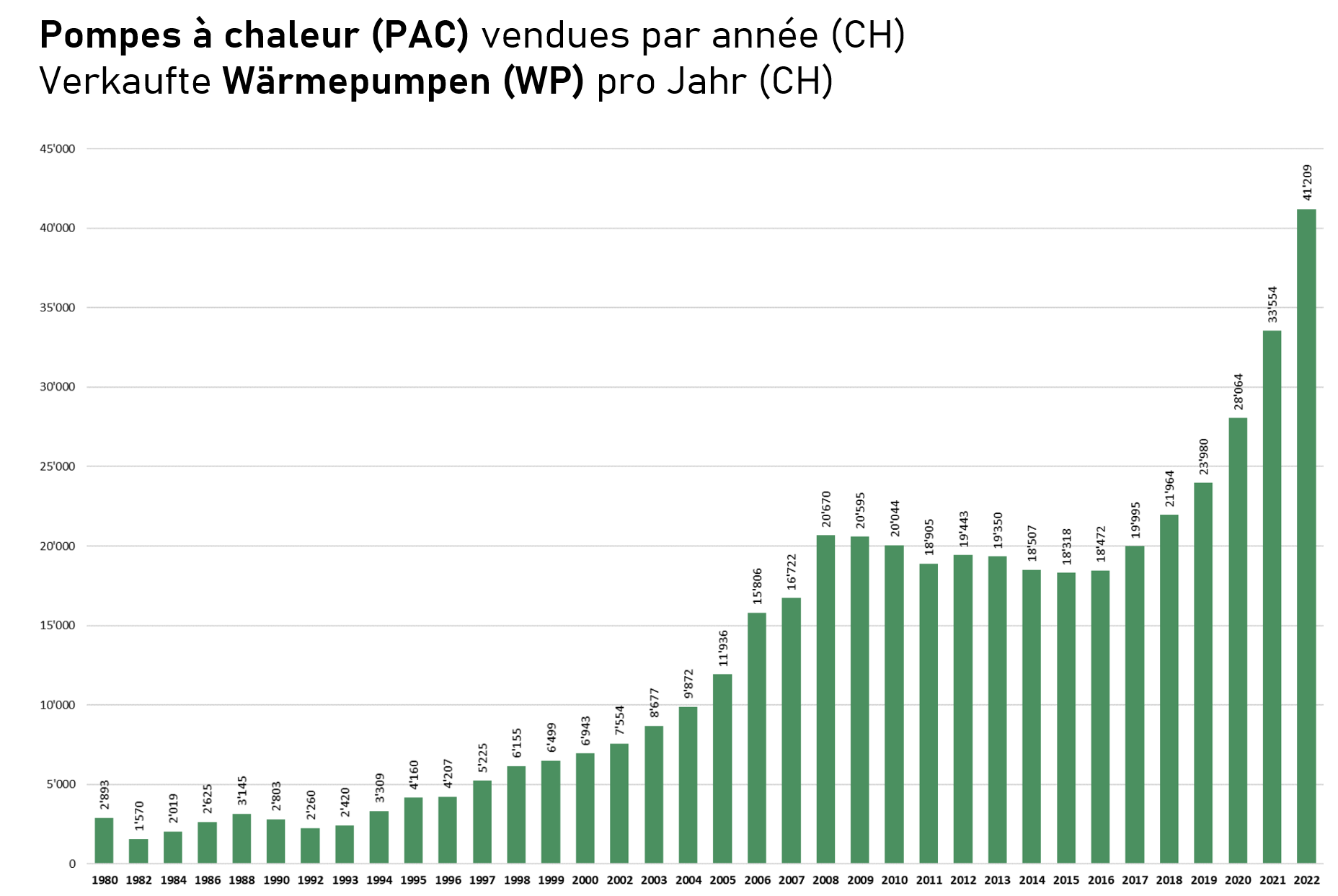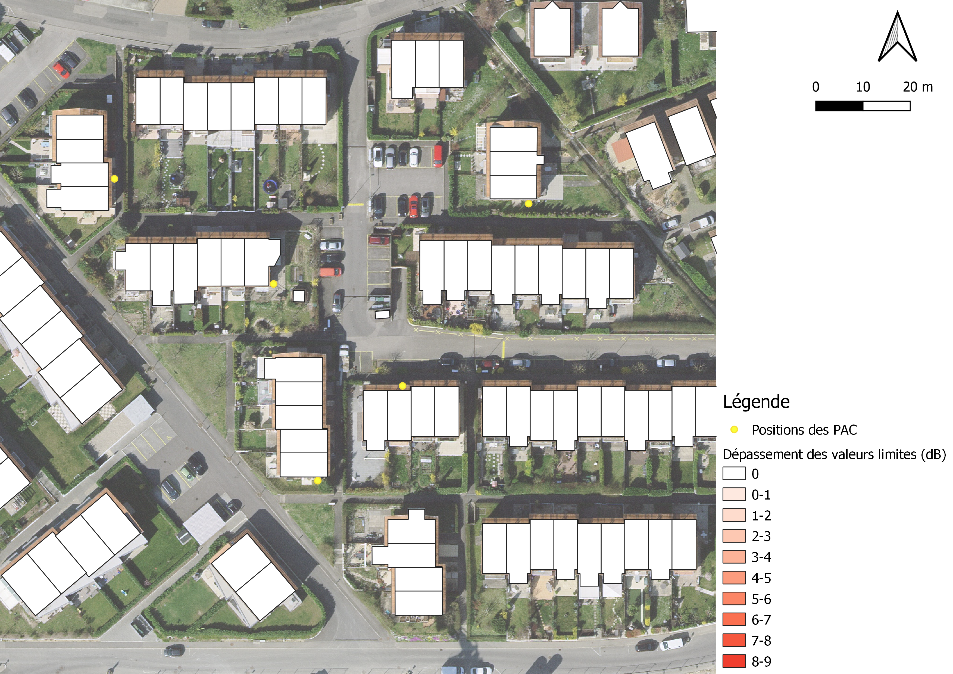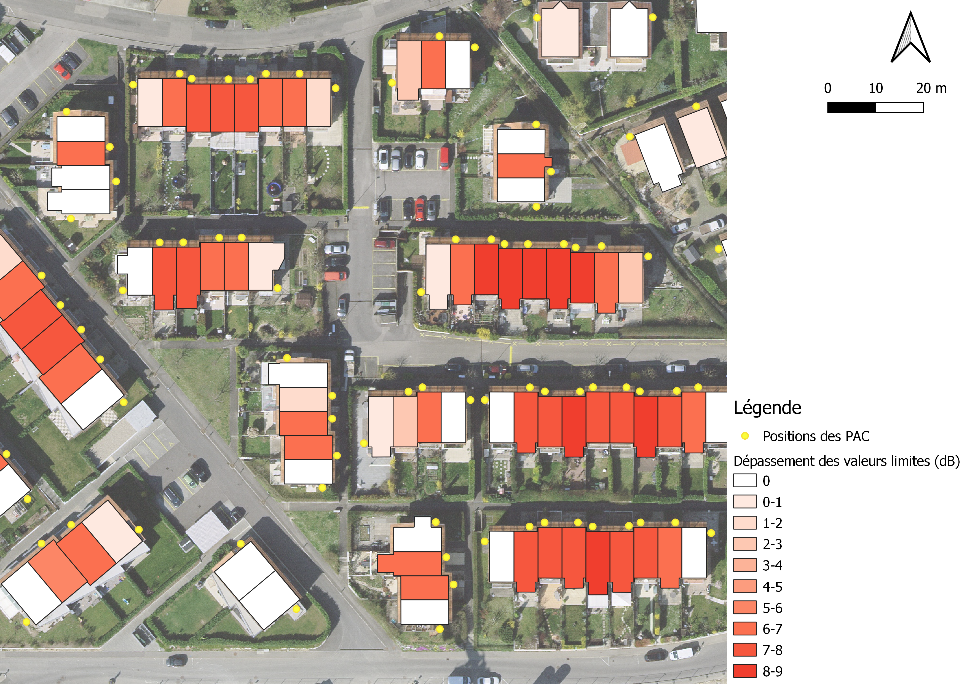Heat pumps: The solution of the future?
Year after year, the number of heat pumps (HP) in Switzerland is steadily increasing:

Source: https://www.fws.ch/fr/statistiques/
By using energy from its environment (air, earth), a heat pump heats/cools a building with predominantly clean, local and renewable energy. Compared to conventional heating systems (oil, gas), the heat pump enables significant energy savings and reduces the CO2 emissions of a house. Moreover, the ratio between the energy provided to the heat pump to function and the energy emitted by the system is excellent. In short, the heat pump is a successful model.
However, as the name suggests, the heat pump works with a pump, and a pump.... makes noise, especially if it is installed outdoors. One or two pumps running around the clock may not bother our ears. But now imagine you live in a densely populated neighbourhood where every house has its own outdoor heat pump. What will be the total noise level in the neighbourhood? Won't the cumulative sound level of all these pumps become annoying to the residents?
What communities need to know
Imagine you work for the municipality. You receive the very first file for an application to install a heat pump. The application contains a certificate of compliance duly completed by a third party (heating company, acoustician, etc.) and generated using the noise district's web form. Without hesitation, you grant the permit, the "Holy Grail" for the owner. In fact, you see no reason to complain because the selection of the pump and its placement outdoors meet the requirements of the Noise Ordinance (OPB): No residential buildings exceed the sound immission limits as defined by the OPB.
The first application is approved and the heat pump is installed. Then comes a second, third, fourth, fifth application. All signals are green. No pump causes excess noise as defined by the OPB and they are all reasonably spaced:

Everything is going well... And now suddenly everyone decides to install an outdoor heat pump. They are faced with a dilemma: "Heat pumps are good, but couldn't the cumulative noise of all these heat pumps lead to excessive sound levels for each house? Should we continue to accept the installation of all pumps? Can we start rejecting them even though we approved the first ones without conditions? How can we justify this while ensuring fair treatment of neighbours?"
Without action, the neighbourhood could look like this:

The accumulation of heat pumps could lead to noise exceedances in almost all neighbouring buildings. The neighbourhood could turn into a heat pump disco. Of course, the scenarios depend on the power and position of the heat pumps, but the possibility of running into such a situation should alarm the authorities. Should we accept pumps with high sound power? Should we take measures from the first applications for the installation of heat pumps? Should we promote technical measures to reduce noise at source? All these questions are valid. Faced with all these considerations, G+P will help you find answers and anticipate the future in terms of their experience in noise assessments (modelling, on-site measurements, data analysis).
/www.gundp.ch/file/2054/Slider_W%C3%A4rmepumpe_0.png)
/www.gundp.ch/file/2056/Slider_W%C3%A4rmepumpe_1.png)
/www.gundp.ch/file/2055/Slider_W%C3%A4rmepumpe_2.png)
/www.gundp.ch/file/1625/CPX_Jaun_Quadratisch.jpg)
/www.gundp.ch/file/2674/Blog%20und%20LinkedIn.png)
/www.gundp.ch/file/2741/Blog_acoustic-assessment-of-pv-systems-on-motorways.png)